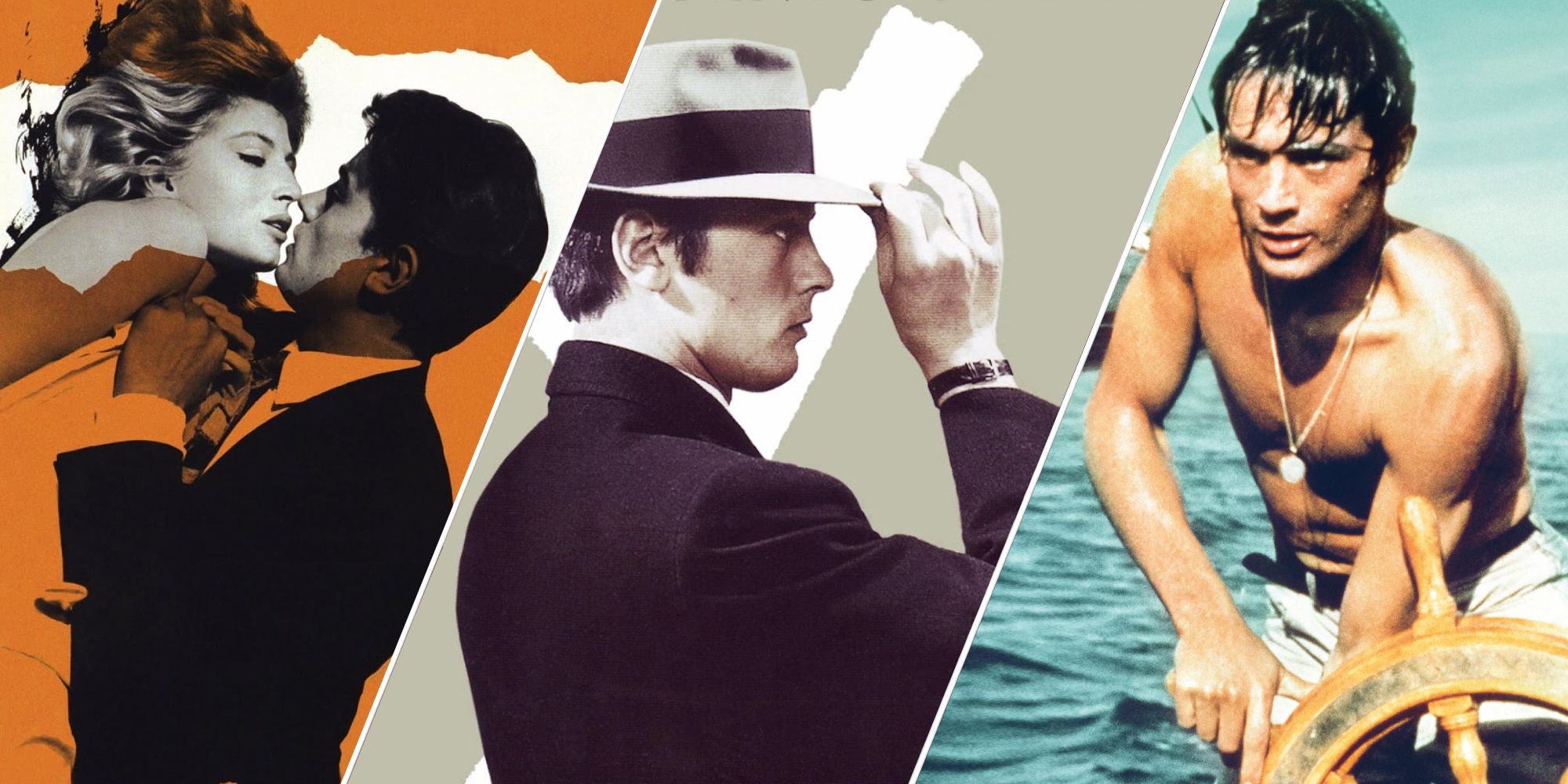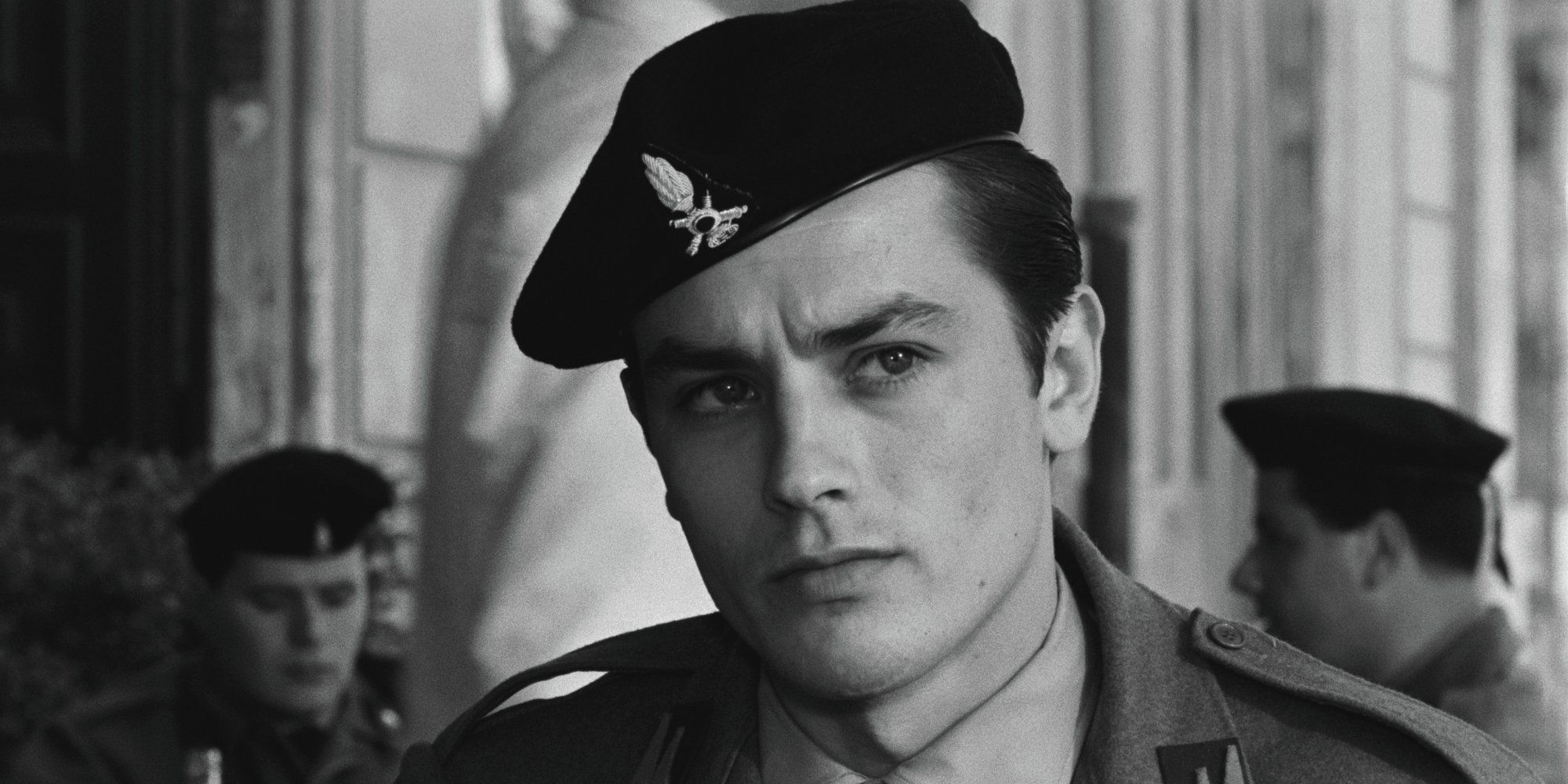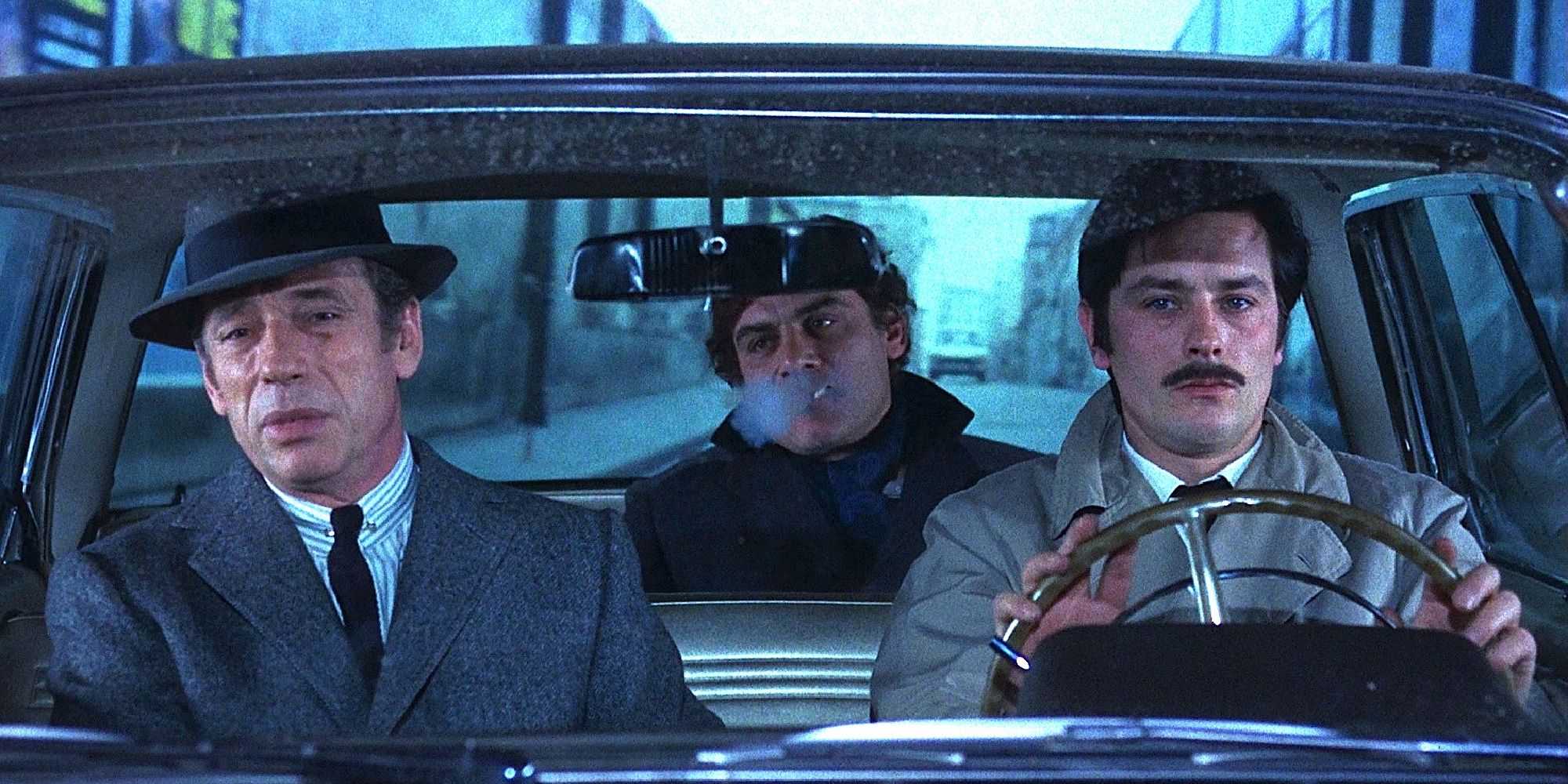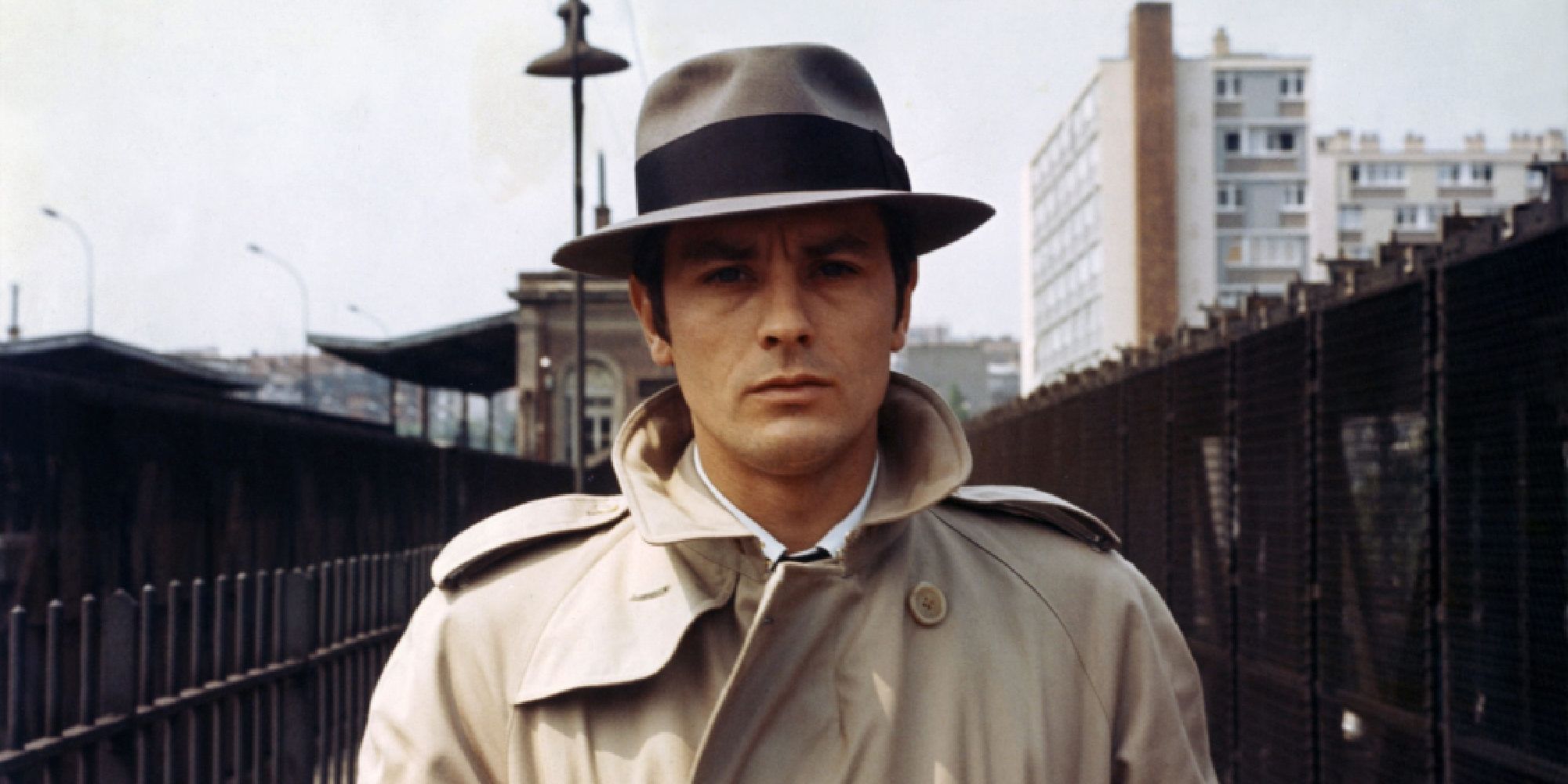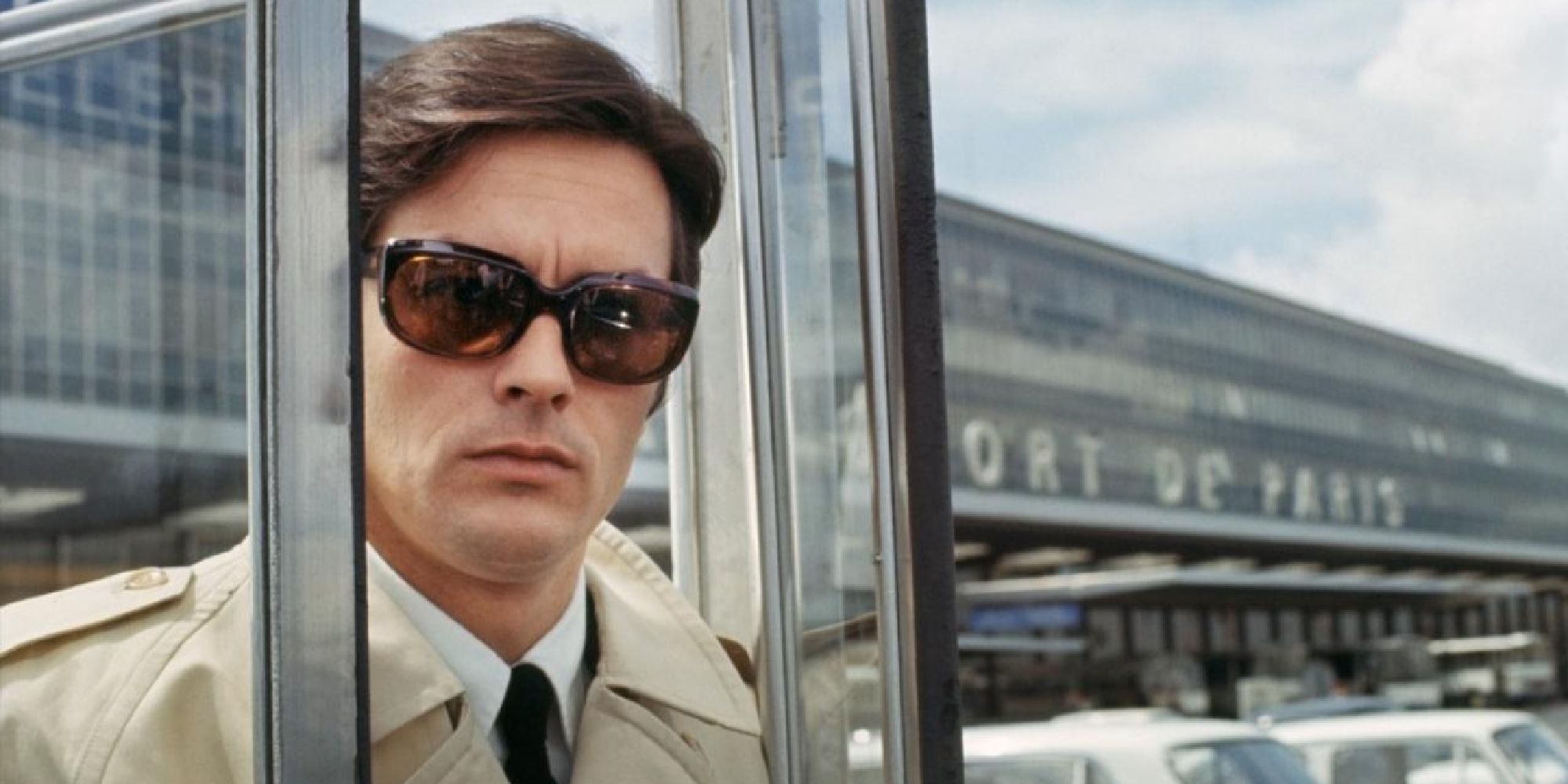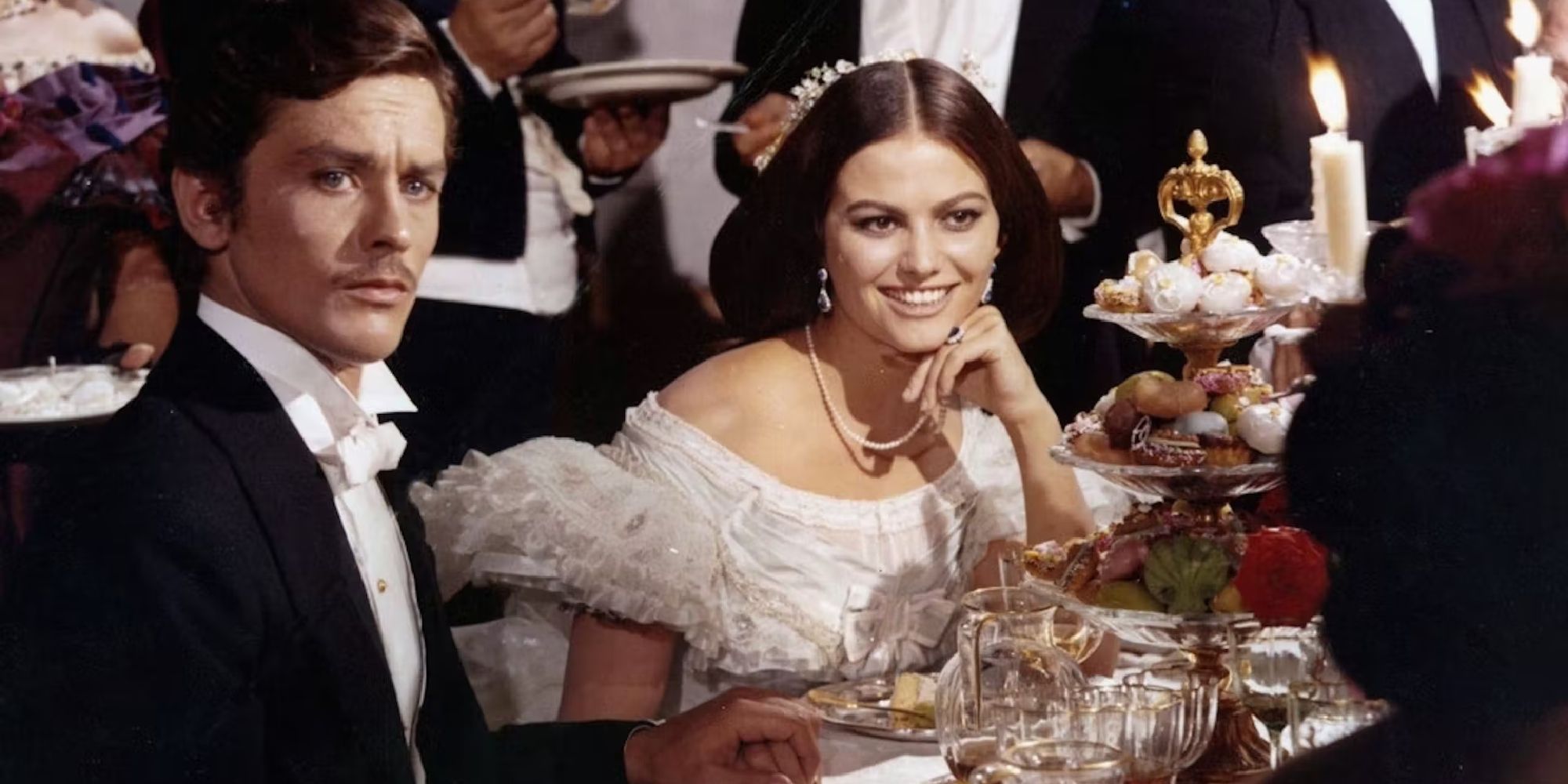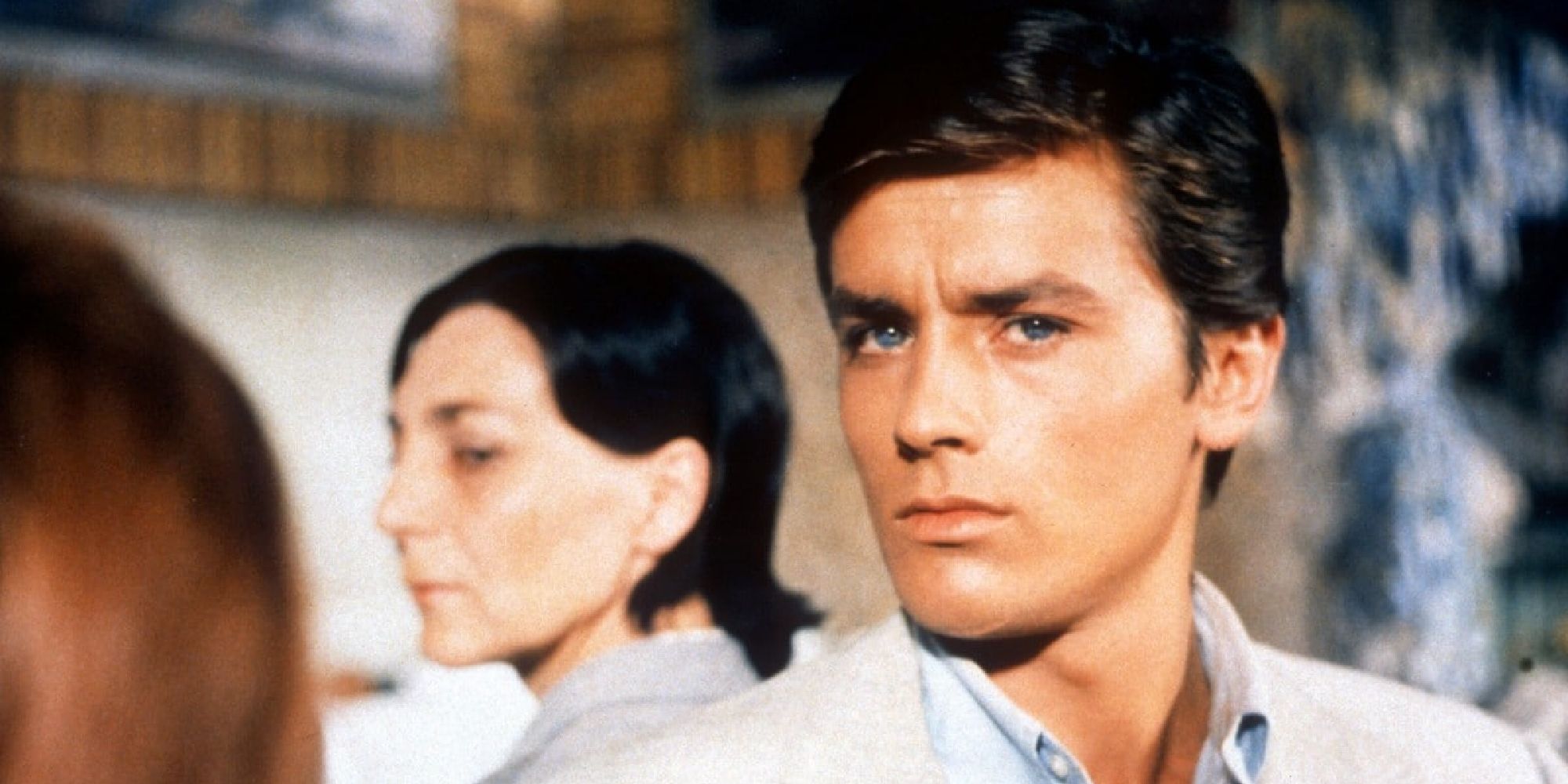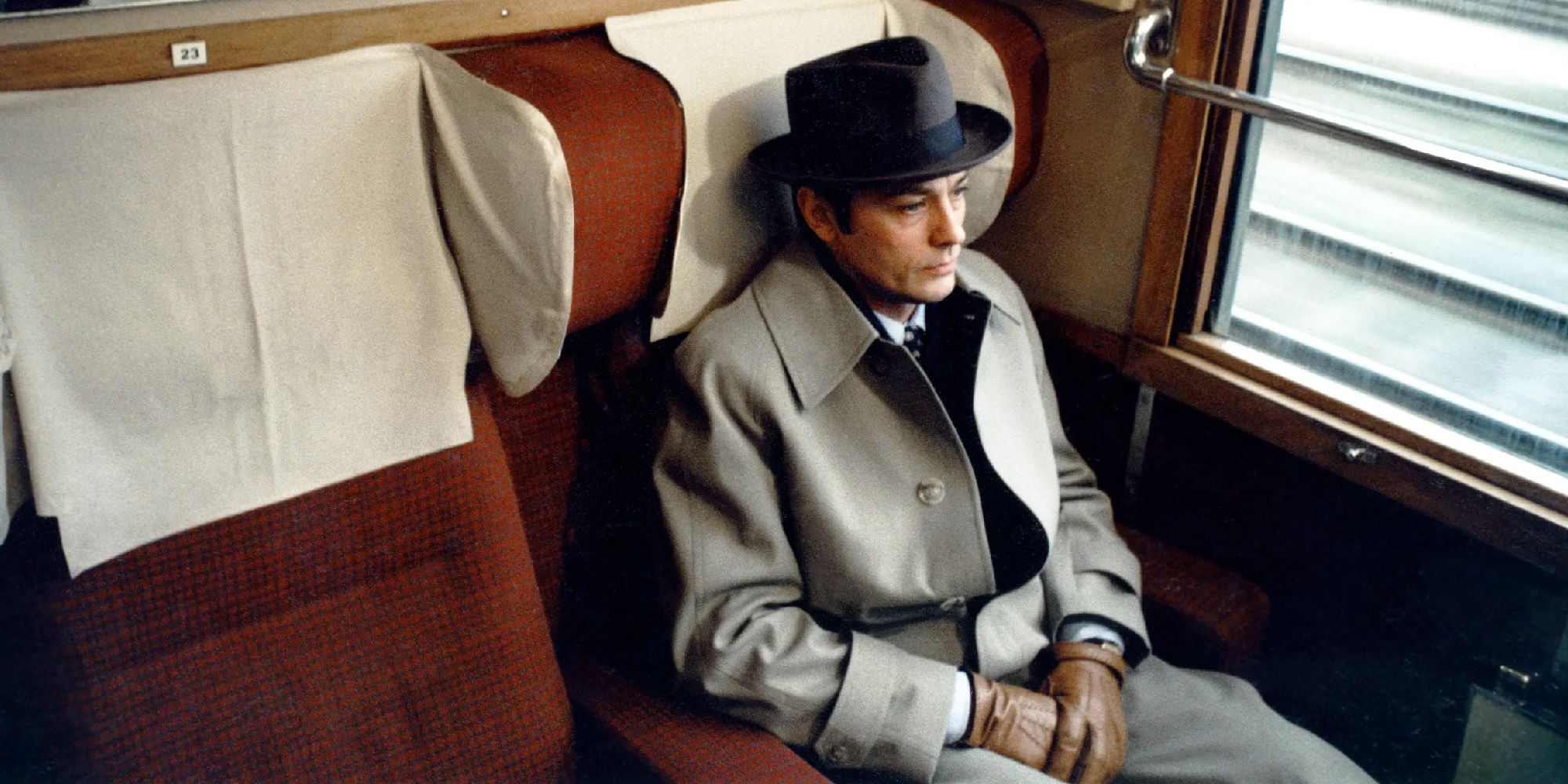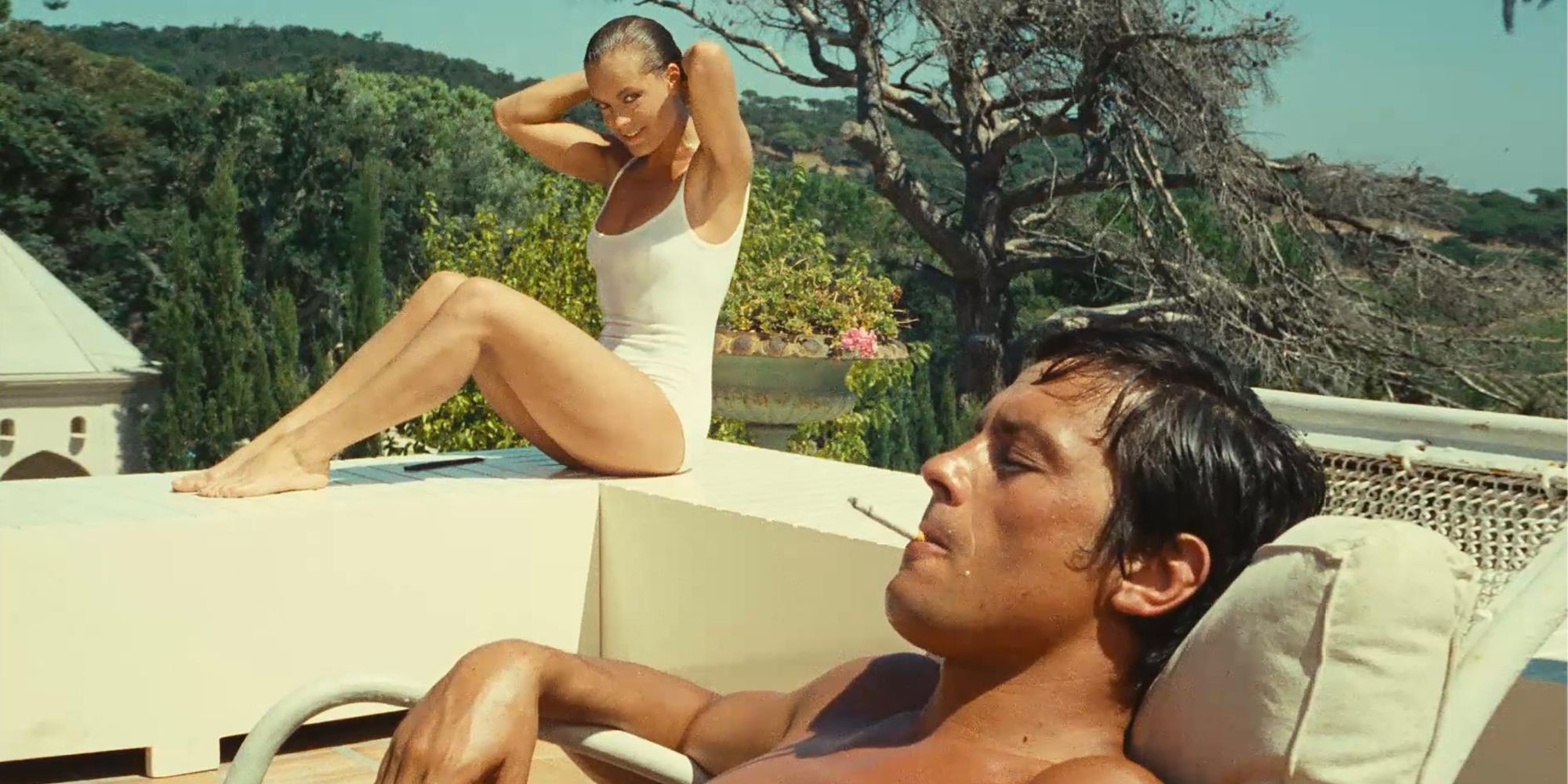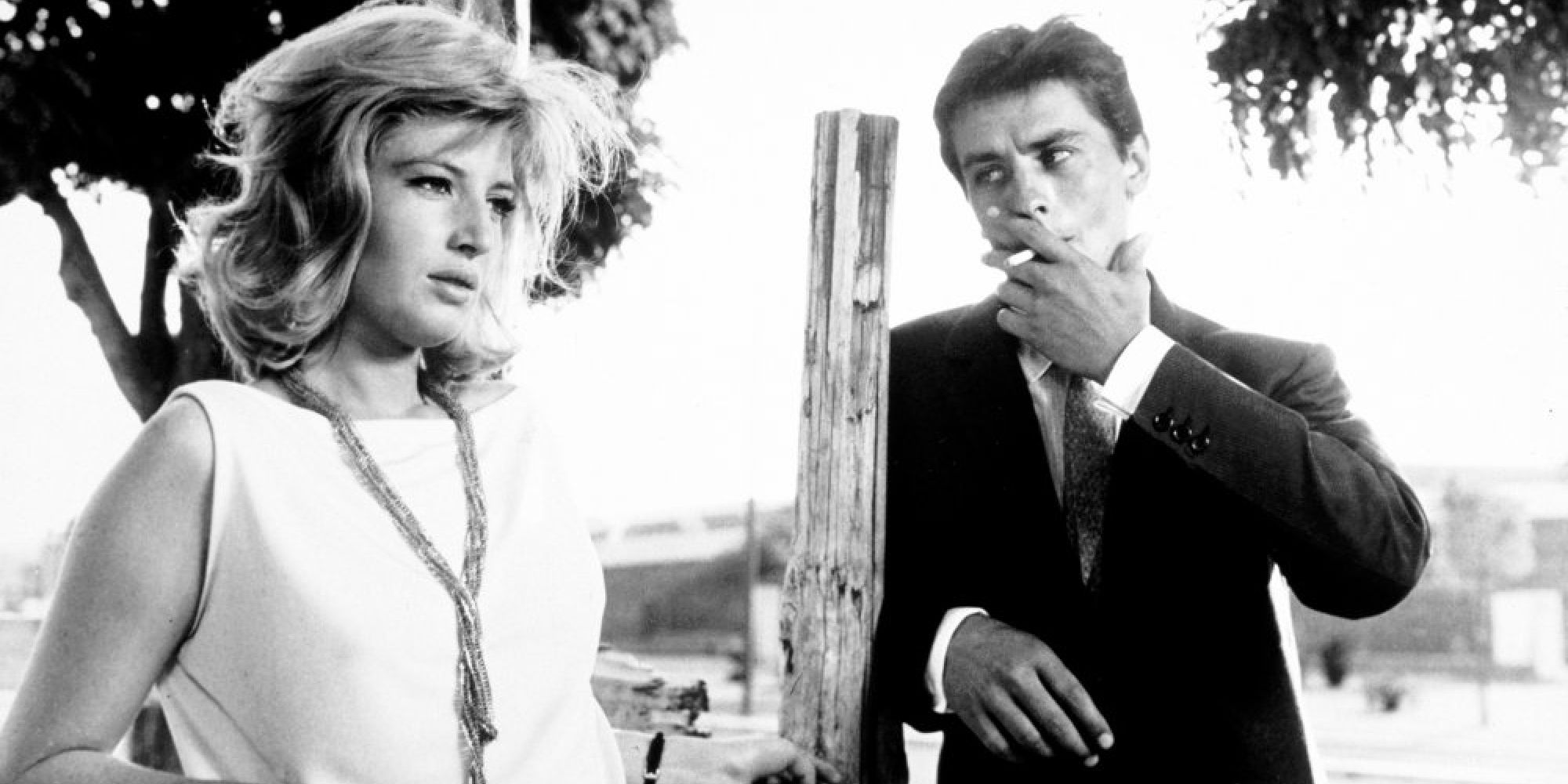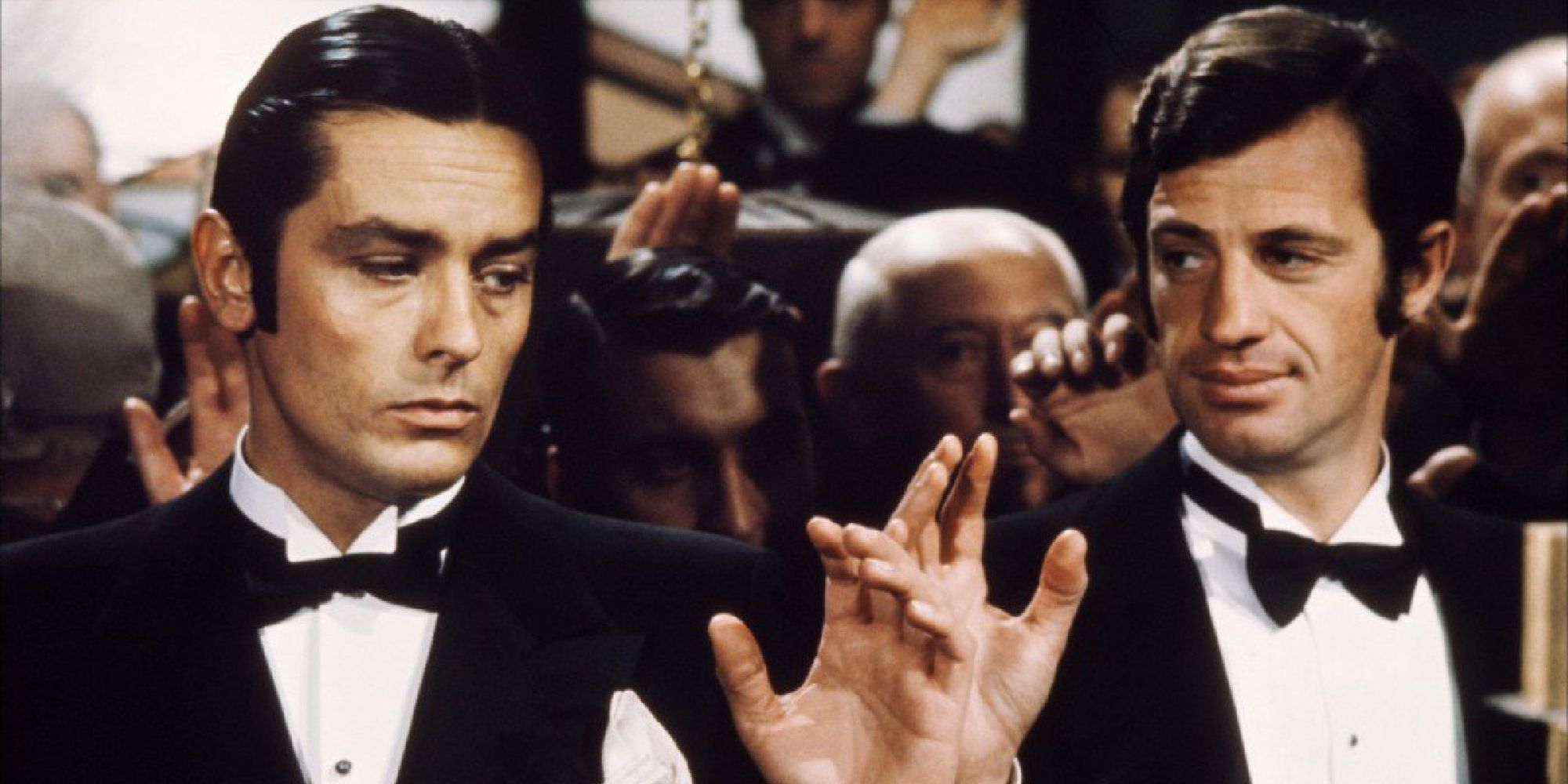Alain Delon is one of those rare international stars who's become well-known throughout much of the world. While every film industry in every country has its iconic stars, only a few of those will transcend their country to become household names in places on the other side of the world. French actor Alain Delon is perhaps one of them, particularly when he was at the height of his powers as an actor, during the 1960s and 1970s.
Owing to his intense, handsome looks, his versatility with a wide variety of roles and genres, and the fact he's been active for over 60 years, he's been involved with numerous classic films. It would be hard to mention them all in just one list, so here are 10 of the best films Delon appeared in during the 1960s and 1970s, including both lead and supporting roles.
'Rocco and His Brothers' (1960)
A sprawling, almost three-hour family crime epic that many believe influenced another sprawling, almost three-hour family crime epic that came out 12 years later, Rocco and His Brothers was one of Alain Delon's first big breaks as an actor.
Delon plays Rocco, and as alluded to in the title, it's about him and his brothers (he has four of them). They struggle to make ends meet in life - sometimes resorting to crime - and things get even more tense and heated when Rocco and one of his brothers, Simone, fall for the same girl. It's a long and emotionally intense - even tragic - film, but it's held up well, and showcases that right from the start of his career, Delon was one actor to keep an eye on.
'Le Cercle Rouge' (1970)
Le Cercle Rouge (or The Red Circle) is one of those rare heist films that feels just about perfect. Delon plays a man who's just been released from prison, but quickly gets roped back into the criminal lifestyle he swore to leave behind. They begin to plan a large-scale jewel heist, all the while a Police Commissioner tracks their every move.
It's 140 minutes in length, but never becomes boring, thanks to its stylish direction, tense suspense sequences, and a great heist scene. It's far from the only good heist film Delon would appear in during the first couple of decades of his career, but it's almost certainly the best.
'Le Samouraï' (1967)
In what is perhaps his most iconic role, Alain Delon plays a cold, calculating assassin in Le Samouraï (its English title is the less-cool sounding "The Godson"). It's a stylish and deliberately paced film, but sucks you in thanks to its hypnotic visuals and rhythm, as well as because of Delon's calm and collected performance.
Things spin out of control for Delon's hitman character once he starts being pursued by the law and other hitman associates, with the film getting tenser and tenser the more he's backed into a corner. Some may find the film to be more cold than cool, but the style is undeniably strong enough that Le Samouraï endures as one of Delon's best roles.
'The Sicilian Clan' (1969)
The Sicilian Clan is yet another crime film starring Delon that's worth a watch, although he's more part of an ensemble cast here, rather than its star. The film has a pretty wide scope for a less than two-hour long movie, focusing on a successful heist and the consequences some of its participants face in the aftermath.
One thing that makes this film stand out is the score done by Ennio Morricone, who composed some of the most beloved film scores of all time (plus a host of underrated ones). It elevates the otherwise solid crime story here, with the strong themes helping to tie together a movie that otherwise might sometimes risk spiraling out of control.
'The Leopard' (1963)
A large-scale epic, coming in at over three hours and spanning multiple years, The Leopard is an Italian film starring the American actor, Burt Lancaster. In it, he plays the head of a wealthy family, as he struggles to keep them (and himself) afloat during the 1860s; a time of great political upheaval and change in Italy.
Delon has a supporting role in the film as the nephew of Lancaster's character, effectively portraying the next generation of wealthy Italians who are to take over once the older ones have passed on. It may not be easy to care for such drama when it concerns the ultra-wealthy, but Lancaster and Delon both give good performances, and the fact the film's presented in a visually stunning manner makes the 3-hour runtime easier to swallow.
'Purple Noon' (1960)
Based on the famous novel, The Talented Mr. Ripley, Purple Noon sees Alain Delon play Tom Ripley. He's perfectly cast as the infamous character, given he's charming, easy to like, but intense, which makes it believable when he starts doing cruel, violent things to exact revenge for the wrongs committed against him.
It's a morally gray movie with a fascinating character at its center, which has made the book series featuring Ripley a popular one to adapt to the screen (there are even plans for a TV series adaptation). Few can top Purple Noon, though, with Delon perhaps holding the title for the best on-screen depiction of Ripley, and it should also be noted that Purple Noon was the first time the story was adapted to the screen.
'Mr. Klein' (1976)
Mr. Klein is a bleak thriller set during the middle of WW2. It also features one of Alain Delon's darkest and most sinister performances, as he plays an immoral art dealer who benefits from those desperate to leave France. They sell their art at a significant discount because of their desperation, which Klein then benefits from.
The film is essentially about this man exploiting a tragedy, although complications arise when he's mistaken for another man of the same name: a Jewish man being targeted in the Holocaust. The film becomes about Klein's (often futile) efforts to prove his identity, leading to a dark climax. It's far from a fun film, but it's an intense and well-made one, and handles its very difficult themes gracefully.
'The Swimming Pool' (1969)
The Swimming Pool is a slow but beautiful-looking movie, with the lavish mansion it takes place in and the constantly sunny weather partially obscuring the darker story at the film's core.
The film starts like a romance, but it wouldn't be accurate to call the entire film one, exactly. Alain Delon and Romy Schneider play lovers on vacation, only to have tension develop when they're joined by two people: one of Schneider's character's exes, and his teenage daughter. It's another slow-burn, classy French thriller, which stays memorable because of its visuals and some risqué (for their time) scenes.
'L’Eclisse' (1962)
Filmmaker Michelangelo Antonioni was no stranger to making psychological dramas that were mysterious, slow, and psychologically dense. L'Eclisse is one of them, becoming the third part in a loose thematic trilogy that also includes 1960's L'Avventura and 1961's La Notte.
The film follows two people who fall in love quite suddenly, but seemingly just as abruptly, they begin to find their romance tested in numerous ways. Alain Delon plays one of the pair, with his attention more often than not on the stock exchange than on his partner, played by Monica Vitti. Things reaching a breaking point coincides with a solar eclipse... hence the English title, The Eclipse. It's a strange, haunting, and often confusing film, but it undeniably contains power in its performances and bold, black-and-white images.
'Borsalino' (1970)
Borsalino is a crime film that pairs Alain Delon with another icon of French cinema, Jean-Paul Belmondo. The two play rivals that begin the film (literally) fighting over a girl, but soon realize they want the same things in life, and strive to create their own crime empire, instead of doing work for local gangster bosses like they're expected to.
It's a very breezy film, thanks to its charismatic stars and an upbeat soundtrack. Towards the end, it does get more violent and more intense, which is a little jarring, but it does make sense. That's the way most crime films go, after all: there's a rise, followed by some kind of fall...

